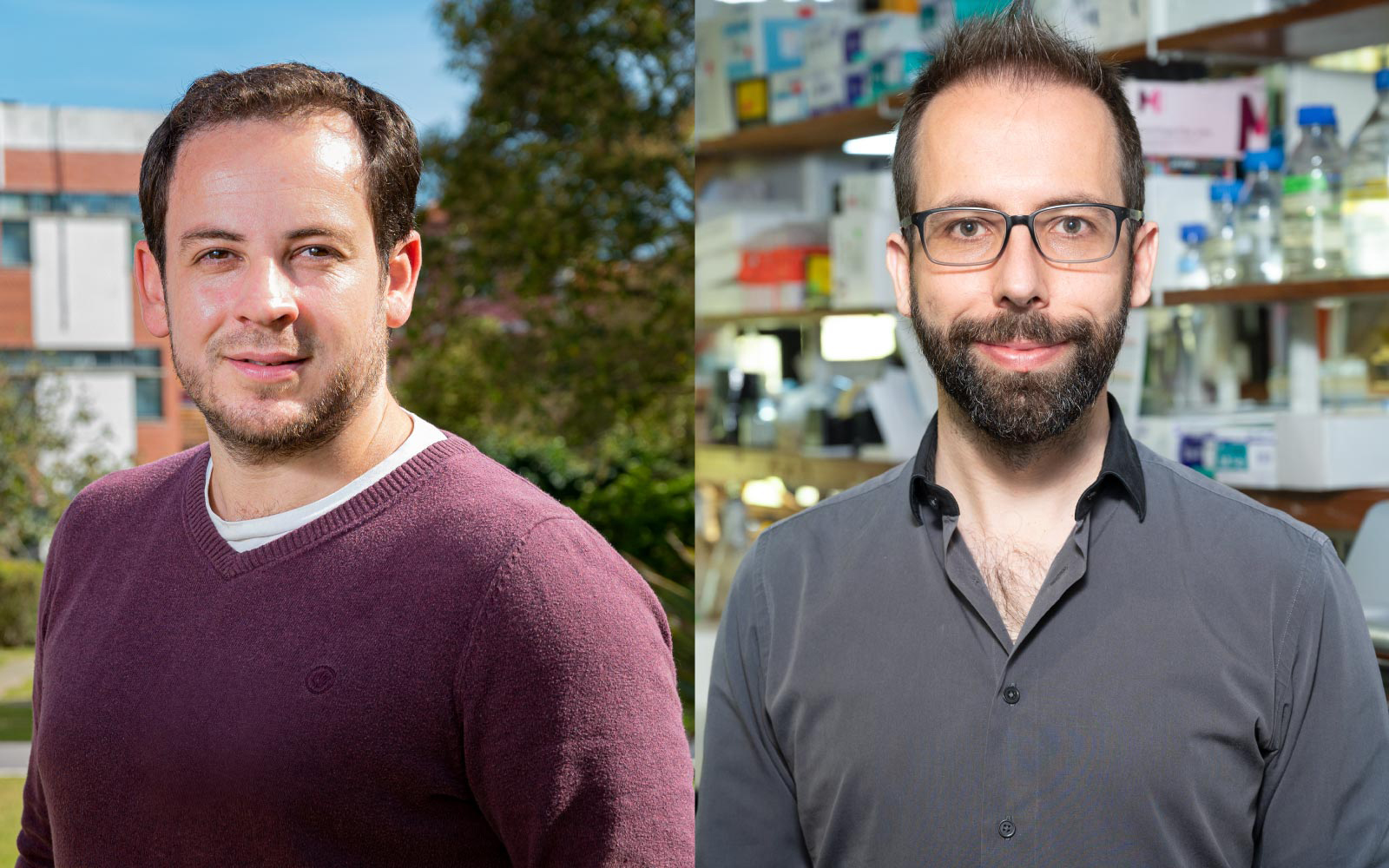Two EMBO Installation Grants for Portugal secured by IGC

This competitive initiative aims to support early-career scientists who are in the process of establishing their laboratories. EMBO Installation Grantees receive 50,000 euros annually for three to five years, and can apply for additional grants of up to 10,000 euros per year.
“We are delighted to welcome to the EMBO community these scientists who carry out outstanding research,” says EMBO Director Maria Leptin. “EMBO is committed to fostering excellence in the life sciences across all of Europe, and beyond. The EMBO Installation Grant programme is an instrument to encourage scientists to move or return to the countries participating in it.”
Elias Barriga will lead the project “Bioelectrical control of directed collective cell migration in vivo”. The project aims to investigate directed collective cell migration (dCCM) by addressing whether and how biophysical cues contribute to this process in vivo. To tackle this challenging aim, the researcher will focus to studying the electrotaxis (electrical guidance of dCCM) at the: tissue level, cellular level and the subcellular level. Elias will address this by applying his novel toolbox that allows measuring and modifying electrical inputs both in vivo and ex vivo. Demonstrating electrotaxis and its precise molecular mechanism in vivo has proven to be a challenging goal but Elias expects his research to be a breakthrough across fields, bringing new perspectives and tools to comprehensively study the electrical guidance of CCM in vivo. In the words of Elias ‘embryos are like batteries where endogenous electric fields are known to emerge. In this proposal, we aim to understand how these electric fields are formed, how cells sense them and to dissect their role in guiding the movement of cells”. Furthermore, Elias reveals that “Bioelectricity is a fascinating field which has been so far neglected due to skepticism but thanks to the EMBO Installation Grant he is now in an excellent position to advance our knowledge about the role of endogenous electric fields”.
To Ricardo Henriques, the EMBO Installation Grant for the project “Unveiling live-cell viral replication at the nanoscale” will “extend the capacity to develop unprecedented technology to capture and study key stages of intracellular viral infection. This support will help us strengthen collaborations across the EMBO network, accelerate our research and maximize our capacity to tackle some of the largest knowledge gaps we still face in infection biology.” The researcher will focus on developing Super-Resolution Prioritized Imaging (SRPI), designed to tackle challenges in studying viral replication. “Intelligent” imaging schemes will be created by using machine-learning capable of predicting non-destructive imaging schemes. The SRPI concept will enable unprecedented observations in infection studies. The technology created will be fully openly shared, democratizing its use.
The new EMBO Installation Grantees will become part of the EMBO Young Investigator Network, which consists of Young Investigators, Global Investigators and Installation Grantees. EMBO is an organization of more than 1800 leading researchers that promotes excellence in the life sciences in Europe and beyond.
Read Press Release
